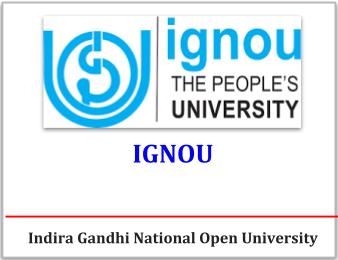IGNOU HISTORY NOTES : Modern India - THE RUSSIAN REVOLUTION: CAUSES, COURSE, AND SIGNIFICANCE

IGNOU HISTORY Study Notes for IAS, UPSC Exams
Modern India 1857-1964
THE RUSSIAN REVOLUTION: CAUSES, COURSE, AND SIGNIFICANCE
Structure
14.0 Objectives
14.1 Introduction
14.2 Why you should study it
14.3 Causes of the Russian Revolution
14.3.1 The Agrarian Situation and the Peasantry
14.3.2 Workers, Industrialisation and Revolution
14.3.3 Tbe Nationalities Question
14.3.4 Political Groups: Leadership
14.4 Stages of Revolution
14.5 Nature and Significance of the Revolution
14.5.1 Economic Aspects
14.5.2 Social Aspects
14.5.3 Political Aspects
14.5.4 International Aspects
14.6 Impact on the National Liberation Movement in India
14.7 Let Us Sum Up
14.8 Keywords
14.9 Answer to Check Your Progress Exerciges
14.0 OBJECTIVES
After reading this Unit you will be able to:
- asses the importance of the Russian Revolution as a world event,
- explain the causes of the Russian Revolution,
- narrate the course of events during the revolution,
- establish its linkage with the Indian Liberation Struggle, and
- understand what a socialist society means in social, economic and political terms.
14.1 INTRODUCTION
The Russian Revolution was made in October 1917. It is also known as the Bolshevik Revolution. It was a proletarian-socialist revolution, inspired by the ideals of communism. In Unit-12 you have learnt what socialism is, and how a socialist society is more advanced and more just, and more egalitarian than a capitalist society. The Russian Revolution aimed at the creation of such a society in Russia. Leadership to this revolution was provided by the Russian Social Democratic Labour Party, particularly the Bolsheviks. The RSDLP represented the working class which was the leading force of the revolution. The peasantry also played a significant role. In fact, the Russian Revolution was brought about by the working people of Russia, because they were the most oppressed and therefore most interested in a total transformation of the social and political system which exploited them.
14.2 WHY YOU SHOULD STUDY IT
But why are you being taught about it in a course which is essentially a Modem Indian History Course ? You may have wondered.
It is important that you know that all events, however earthshaking, take place in a historical context and in tum form a part of the historical context for later advances of mankind. The birth of socialist ideas, particularly Marxism, transformed man's understanding of reality- of social and political structures and of the history of mankind itself. The Russian Revolution showed in concrete practice the possibilities of destroying exploitative societies,
and creating new, free and just societies. In doing so it had a tremendous impact on all movements of emancipation, hereafter, including the struggles for independence from foreign rule and imperialism. It also provided inspiration to the national liberation movement in India, particularly to the revolutionary struggles of the working people. Therefore, you must study the Russian Revolution.
14.3 CAUSES OF THE RUSSIAN REVOLUTION
By 1917 the working people of Russia were no longer prepared to tolerate their dehumanised situation. They were also by then politically organised, and therefore able to overthrow the old social and political order. But why only then? In the decades preceding 1917, Russian society was undergoing great changes that resulted in a crisis for the old order. The new social and economic forces created by these changes had different interests and aspirations. Therefore, by 1917 there emerged an intense contradiction and polarisation between the old and the new in Russia. The Russian revolutionary movement represented the democratic aspirations of these new forces. The Russian state on the other hand represented the interests of the old ruling classes. In Russia right up to 1917 there.existed an autocratic form of government. There were no representative institutions. No right to form political organisations. There was strict censorship and arbitrary arrests. There was no religious toleration, and there was oppression of all nationalists other than Russian. The Russian Empire was a multi-national Empire ' . which used its strength against all democratic movements in Europe. It was known as the 'Policeman' of Europe.
The Russian autocracy remained strong on the support of the landed aristocracy and the bourgeoisie. In turn this autocracy guaranteed to these classes their privileged position in Russian society. There was thus, by 1917, not only a conflict between the old social forces and the new, but also between these new social forces and the Russian state. The Russian revolutionary movement therefore sought to over throw the Russian
autocracy.
Click here to download full Chapter
Courtesy: eGyanKosh


